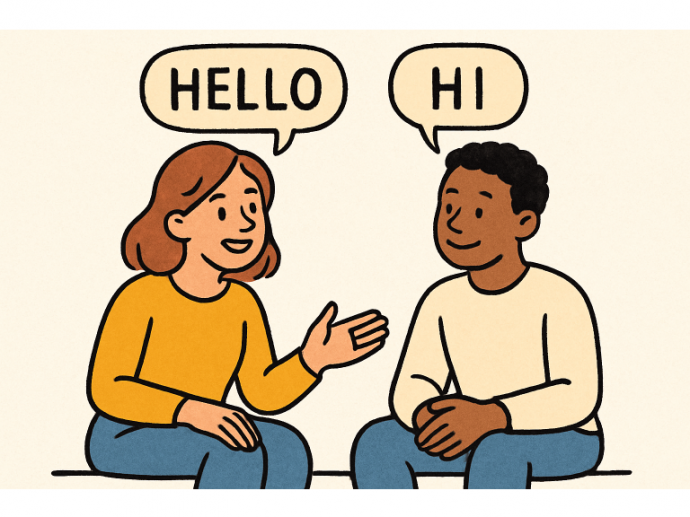Categories more
- Adventures (17)
- Arts / Collectables (15)
- Automotive (37)
- Aviation (11)
- Bath, Body, & Health (77)
- Children (6)
- Cigars / Spirits (32)
- Cuisine (16)
- Design/Architecture (22)
- Electronics (13)
- Entertainment (4)
- Event Planning (5)
- Fashion (46)
- Finance (9)
- Gifts / Misc (6)
- Home Decor (45)
- Jewelry (41)
- Pets (3)
- Philanthropy (1)
- Real Estate (16)
- Services (23)
- Sports / Golf (14)
- Vacation / Travel (60)
- Watches / Pens (15)
- Wines / Vines (24)
- Yachting / Boating (17)
Healthy Communication Habits for Stronger Relationships
Published
09/29/2025Building solid communication skills improves conflict resolution, deepens emotional intimacy, boosts trust, and fosters growth. Creating a space where both partners feel heard and respected is vital for resilience and longevity. Healthy habits help navigate challenges and celebrate successes together. Practicing active listening, empathy, and discussing needs prevents misunderstandings and supports a fulfilling relationship. These habits nurture appreciation and empowerment, significantly impacting satisfaction and well-being.
Effective communication is the cornerstone of any thriving relationship. Whether you're navigating new love or nurturing a long-term partnership, cultivating habits that promote open, honest dialogue can transform the way you connect with your partner. If you often find yourself searching for ways to address recurring miscommunications or want to enhance your understanding, the support of a sex therapist in Chicago can help guide you toward greater wellness in your relationship.
Practice Active Listening
Active listening requires more than just hearing your partner's words—it demands your full attention, engagement, and empathy. Give your partner your undivided focus by making eye contact, setting aside distractions, and responding with thoughtful questions or affirmations. Refrain from interrupting and try to paraphrase their statements to confirm your understanding. This approach builds trust and shows that you genuinely value their perspective.
Use "I" Statements
Framing your thoughts with "I" statements can prevent misunderstandings and reduce defensiveness when disagreements arise. Instead of saying, "You never listen to me," try, "I feel ignored when my thoughts aren’t acknowledged." This method encourages open dialogue and allows both partners to express their feelings without fear of blame or judgment.
Schedule Regular Check-Ins
Setting aside time for regular check-ins—such as a weekly or biweekly conversation—helps address issues before they evolve into significant conflicts. These check-ins can be a dedicated moment to discuss emotional needs, celebrate recent successes, or brainstorm solutions to ongoing challenges. Creating this routine reinforces that your relationship is a priority, making it easier to navigate life’s inevitable ups and downs together.
Be Mindful of Non-Verbal Communication
Words are only part of the communication equation. Tone of voice, facial expressions, gestures, and body posture also speak volumes about your emotional state. Paying attention to these non-verbal cues can help you read your partner’s feelings and avoid misinterpretations. For example, an open posture, relaxed shoulders, and a genuine smile can reassure your partner even during difficult conversations.
Set Clear Boundaries
Establishing and respecting personal boundaries is crucial for maintaining autonomy and mutual respect. Boundaries can include your needs around alone time, opinions about privacy, or your approach to conflict resolution. Openly discussing and honoring these boundaries creates a foundation of trust and helps minimize frustration and resentment.
Manage Conflicts Respectfully
No relationship is free from disagreements, but how you handle conflict can make all the difference. Strive to remain calm, focus on the issue at hand, and avoid personal attacks or bringing up unrelated grievances. Respectful conflict resolution involves listening to understand, validating the other person's feelings, and finding a compromise that honors both partners’ needs.
Validate Your Partner’s Feelings
Validation doesn’t always mean agreeing with your partner, but it does mean acknowledging their emotions as genuine and important. Simple phrases like "I can see why you’d feel that way" or "It makes sense that this is upsetting for you" go a long way in making your partner feel seen and valued. When both people feel validated, emotional intimacy is strengthened and misunderstandings are less likely to escalate.
Seek Professional Guidance When Needed
Relationships face tension, and external support can offer valuable perspective and tools. If conflicts become persistent or hard to resolve, a certified relationship therapist can provide new strategies for meaningful change. Therapy also helps partners uncover underlying issues and improve communication. Incorporating these habits takes ongoing practice, patience, and self-awareness. Prioritizing open, respectful dialogue and understanding fosters a stronger, resilient bond capable of handling challenges and celebrating growth.
Strengthening Your Connection
Healthy communication is an ongoing practice requiring patience, consistency, and mutual respect. You and your partner can build trust by actively listening, expressing yourself clearly, honoring boundaries, and handling conflicts with empathy. Regular check-ins and mindful non-verbal cues reinforce your commitment. When challenges feel overwhelming, seeking professional guidance can help. Relationships thrive when both partners invest in honest, compassionate dialogue and work together to nurture a lasting connection.















